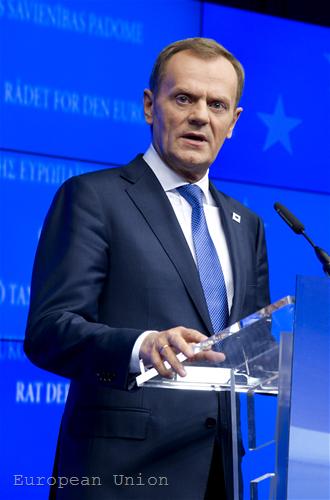The Second Greek Loan Could Cost More than Expected
Ralitsa Kovacheva, October 5, 2011
 Clouds are thickening over Greece, not only because the decision for the release of the sixth tranche of the Greek loan, from the EU and IMF, has been postponed until November. In a situation of growing social tension and daily strikes, Greece will probably have to make additional efforts, which means to adopt further restrictive measures to meet fiscal targets, and to achieve structural surplus next year. At the same time, private lenders to the country are threatened to face greater losses than agreed on 21 July.
Clouds are thickening over Greece, not only because the decision for the release of the sixth tranche of the Greek loan, from the EU and IMF, has been postponed until November. In a situation of growing social tension and daily strikes, Greece will probably have to make additional efforts, which means to adopt further restrictive measures to meet fiscal targets, and to achieve structural surplus next year. At the same time, private lenders to the country are threatened to face greater losses than agreed on 21 July.
This picture emerged after the meeting of eurozone finance ministers, which  lasted until midnight on Monday. Eurogroup President Jean-Claude Juncker explained that the delay was due to protracted negotiations with the Troika (the European Commission, the ECB and the IMF) and the need to await the mission’s report. President Juncker assured that "in spite of this changed schedule Greece will be in a position to meet its financial obligations." The Eurogroup will decide on the next tranche in the course of October, because Greece will need it in November only, Juncker said. "We had no one advocating a default of Greece. Everything will be done to avoid that, and it will be avoided," Mr Juncker reaffirmed, adding that no one insisted Greece to leave the euro area: "I have to firmly deny all these rumours, indicating that Greece could be invited or could decide to leave the euro area."
lasted until midnight on Monday. Eurogroup President Jean-Claude Juncker explained that the delay was due to protracted negotiations with the Troika (the European Commission, the ECB and the IMF) and the need to await the mission’s report. President Juncker assured that "in spite of this changed schedule Greece will be in a position to meet its financial obligations." The Eurogroup will decide on the next tranche in the course of October, because Greece will need it in November only, Juncker said. "We had no one advocating a default of Greece. Everything will be done to avoid that, and it will be avoided," Mr Juncker reaffirmed, adding that no one insisted Greece to leave the euro area: "I have to firmly deny all these rumours, indicating that Greece could be invited or could decide to leave the euro area."
 Once it became clear that Greece would not meet the fiscal targets, set by the creditors for 2011, was taken the decision to combine fiscal targets for 2011 and 2012 and to evaluate them together. However, the eurozone finance ministers have urged Greek authorities to agree with the Troika on additional consolidation measures for 2013 and 2014 and to accelerate the implementation of privatisation plans. Against this background, Jean-Claude Juncker expressed confidence that the decision for granting the next tranche of the current loan would be positive. EU Economic and Monetary Affairs Commissioner Olli Rehn stressed once again that strict implementation of commitments that had been taken was crucial, because this was the reason for Greece's failure to achieve the set goals, rather than the recession, as claimed by the Greek authorities.
Once it became clear that Greece would not meet the fiscal targets, set by the creditors for 2011, was taken the decision to combine fiscal targets for 2011 and 2012 and to evaluate them together. However, the eurozone finance ministers have urged Greek authorities to agree with the Troika on additional consolidation measures for 2013 and 2014 and to accelerate the implementation of privatisation plans. Against this background, Jean-Claude Juncker expressed confidence that the decision for granting the next tranche of the current loan would be positive. EU Economic and Monetary Affairs Commissioner Olli Rehn stressed once again that strict implementation of commitments that had been taken was crucial, because this was the reason for Greece's failure to achieve the set goals, rather than the recession, as claimed by the Greek authorities.
The private sector with greater losses from the Greek debt?
It is possible private sector's participation in the second Greek programme, worth 109 billion euros, to be greater than agreed on 21 July, as became clear from Jean-Claude Juncker's remarks. He refused to elaborate but admitted that "technical" revision of the deal was being considered: "As far as the private sector involvement is concerned, we have to take into account the fact that we have experienced changes since the decisions we took on 21 July." Under the deal from 21 July Greek private creditors should voluntary engage in various restructuring schemes with an average loss of 21 percent. Amid the bad budgetary data of Greece and the severe economic situation, however, estimates have already appeared that these parameters would not be sufficient and creditors might be required to write off at least 50% of the Greek debt, so that it can be reduced to sustainable levels.
A deal with Finland on collateral
"The good news" is the agreement that has been reached with Finland on collateral the  country insisted for in exchange to its participation in the second Greek loan. EFSF director Klaus Regling, who conducted the negotiations, explained the deal's condition, underlining that it was a complex financial structure, but "there is a price to be paid." To obtain the required guarantees, Finland must meet several conditions: to pay its capital in the permanent rescue fund (the European Stability Mechanism, ESM) at once in the first year and not in five instalments over five years, as the other countries; the country's profits from the EFSF will be reduced; in case of a default the collateral will be paid out when the EFSF loans mature - this means 15-30 years, during which the collateral will be frozen.
country insisted for in exchange to its participation in the second Greek loan. EFSF director Klaus Regling, who conducted the negotiations, explained the deal's condition, underlining that it was a complex financial structure, but "there is a price to be paid." To obtain the required guarantees, Finland must meet several conditions: to pay its capital in the permanent rescue fund (the European Stability Mechanism, ESM) at once in the first year and not in five instalments over five years, as the other countries; the country's profits from the EFSF will be reduced; in case of a default the collateral will be paid out when the EFSF loans mature - this means 15-30 years, during which the collateral will be frozen.
The collateral itself will be in the form of Greek government bonds, given to Greek banks which, in turn, would give them to an independent trustee. It would sell them and invest proceeds in highly rated debt, and that is what will be held as collateral for Finland. The fourth condition of the deal, however, is the country to receive no more than 30 percent of the yields.
 Jean-Claude Juncker said that "of course, all the ministers understood this proposal" and when he asked if there was another country insisting on collateral like Finland, they all responded negatively. According to Olli Rehn, Klaus Regling "deserves either Nobel prize for economics or Nobel peace prize for preparing this deal."
Jean-Claude Juncker said that "of course, all the ministers understood this proposal" and when he asked if there was another country insisting on collateral like Finland, they all responded negatively. According to Olli Rehn, Klaus Regling "deserves either Nobel prize for economics or Nobel peace prize for preparing this deal."
Changes in the rescue fund (EFSF)
For the first time the ministers have discussed details about the new functionality of the eurozone rescue fund (EFSF), particularly with regard to recapitalisation of banks. For the first time we talked also how to maximise the efficiency of the instruments of the fund, Jean-Claude Juncker explained, stating that it was not about increasing its financial volume. "We need a more flexible and more powerful EFSF as a financial  firewall to contain contagion," Commissioner Olli Rehn said. He recalled that under the decisions of 21 July the fund will be able to grant credit lines, to buy debt on secondary markets and recapitalise banks. "But that will not be enough. We have to use its capacity more effectively and more efficiently by optimising the resources of the EFSF . We need to get more firepower out of the EFSF."
firewall to contain contagion," Commissioner Olli Rehn said. He recalled that under the decisions of 21 July the fund will be able to grant credit lines, to buy debt on secondary markets and recapitalise banks. "But that will not be enough. We have to use its capacity more effectively and more efficiently by optimising the resources of the EFSF . We need to get more firepower out of the EFSF."
Lately, several options have been circulating in media on how to increase the resources of the fund without forcing the countries to increase their capital. While various euphemisms are used - "maximising the efficiency" or "increasing firepower," the options discussed are the EFSF to become an insurer, some kind of special purpose vehicle, which to raise market funding or a bank, which to have access to refinancing by the European Central Bank. The ECB itself, however, together with several key eurozone countries are opposing the latter option. Responding to a journalist's question, Jean-Claude Juncker also said that such an idea would hardly be approved.
 Meanwhile, the changes in the rescue fund functions, agreed on 21 July, have already been ratified by all eurozone countries except the Netherlands and Slovakia, which are expected to do so by mid-October. Especially for Slovakia, where there were concerns about the outcome of the vote, Jean-Claude Juncker said he had received assurances from Bratislava that the changes would be adopted by Parliament.
Meanwhile, the changes in the rescue fund functions, agreed on 21 July, have already been ratified by all eurozone countries except the Netherlands and Slovakia, which are expected to do so by mid-October. Especially for Slovakia, where there were concerns about the outcome of the vote, Jean-Claude Juncker said he had received assurances from Bratislava that the changes would be adopted by Parliament.
 | © The Council of the European Union
| © The Council of the European Union | © The Council of the European Union
| © The Council of the European Union | © European Union
| © European Union Klaus Regling | © Council of the EU
Klaus Regling | © Council of the EU Mario Centeno | © Council of the EU
Mario Centeno | © Council of the EU Mario Centeno | © Council of the EU
Mario Centeno | © Council of the EU